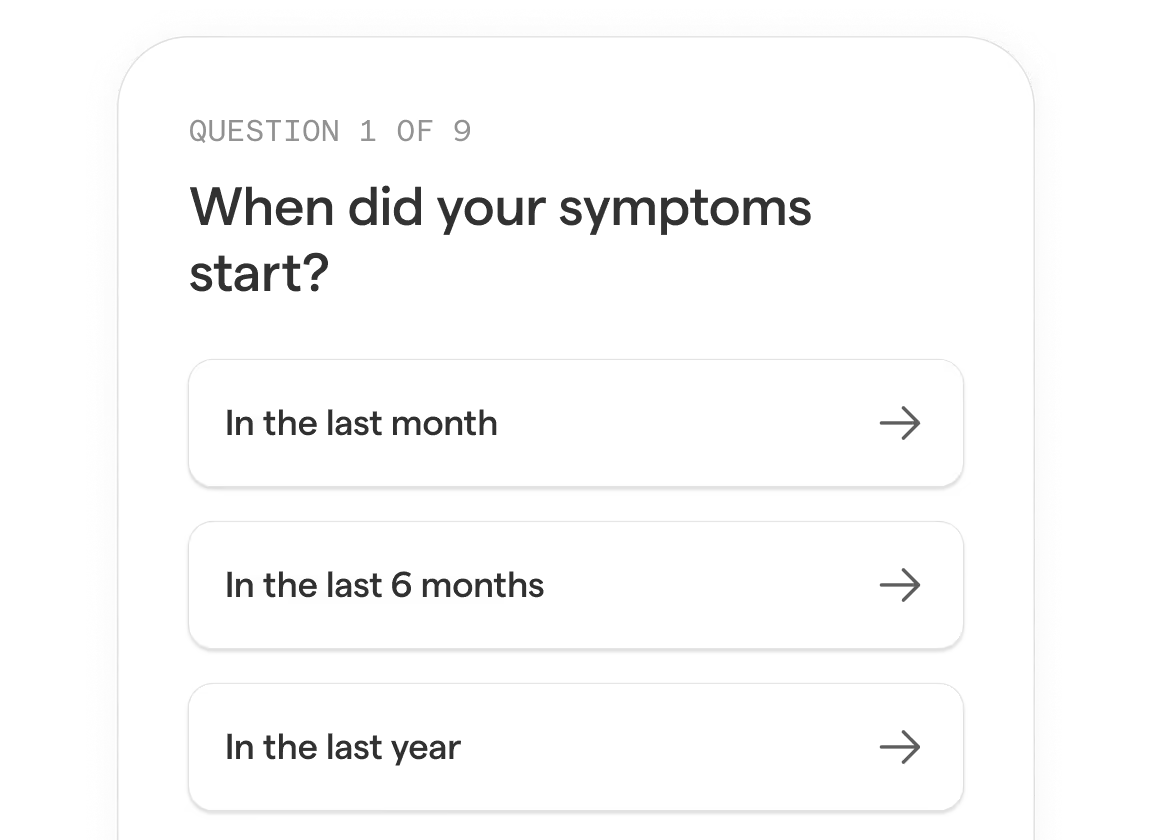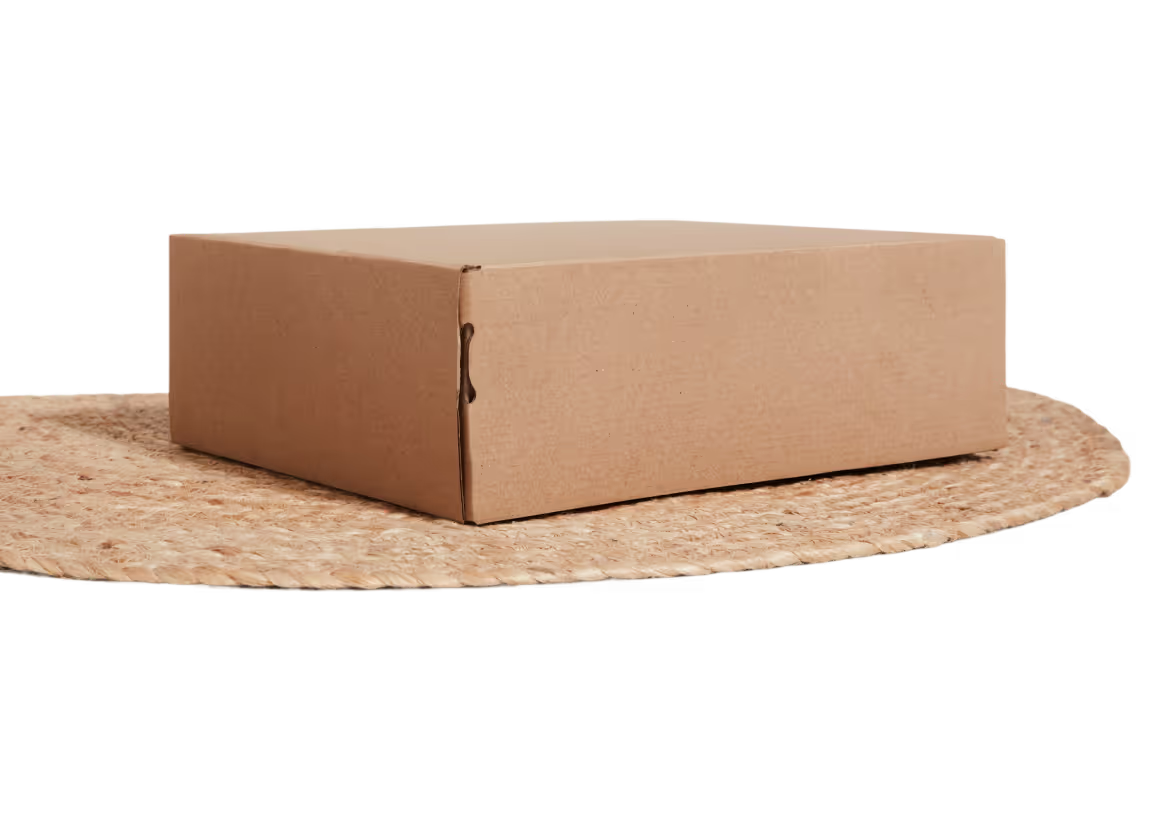Download the Felix App
Earn reward, visit our shop and get exclusive offers on the app
Download now

With Felix, you can get Tirzepatide prescribed by a licensed healthcare practitioner and delivered to your door for free.
Tirzepatide is a combination glucose-dependent insulinotropic polypeptide (GIP) and glucagon-like peptide-1 (GLP-1) receptor agonist medication that’s used in the treatment of type 2 diabetes and for those who have overweight or obesity.
Tirzepatide can be used by itself, or in combination with other medications.
The generic name for this medication is Tirzepatide, and the brand names Zepbound and Mounjaro contain the same active ingredients as Tirzepatide.
If you’d like to learn more about Tirzepatide and how it functions, click here and here to explore the medication monographs.
As a GIP and GLP-1 receptor agonist, Tirzepatide works in a few different ways. It enhances insulin secretion, reduces glucagon secretion, modulates carbohydrate and lipid metabolism, regulates appetite, blood sugar and caloric intake.
In turn, this can be a beneficial way to help control blood sugar levels for patients who are living with type 2 diabetes.
By slowing down digestion, increasing fullness and reducing appetite, helping to decrease calorie intake and reduce body weight.
tirzepatide injections can help with weight management treatment. It can often help to decrease hunger, feel full longer and decrease food cravings.
As a diabetes treatment, Tirzepatide medications are used as a treatment for patients living with type 2 diabetes. It helps manage blood sugar levels, as well as control your body’s natural insulin levels.
In some cases for diabetes treatment, Tirzepatide may be used as a solo medication, or sometime in combination with certain other diabetic treatment medications.
Never combine other medications with your Tirzepatide prescription without first consulting your practitioner for guidance and direction.
As a weight management treatment, Tirzepatide is used to help patients that are living with overweight or obesity as part of their weight management plan, alongside a healthy diet, a calorie deficit, and regular exercise.
By slowing down digestion, increasing fullness and reducing appetite, helping to decrease calorie intake and reduce body weight, using tirzepatide injections may be a beneficial part of your overall weight management plan.
Tirzepatide doses will come in a pre-loaded injector pen, which should be administered once per week at the same time.
It can be a good idea to set an alarm, so that you don’t forget to take your Tirzepatide medication dose when it’s time. Missed or improperly timed dosages may impact Tirzepatide’s effectiveness and your health. This is especially important if you are taking it to control your blood sugar levels. The Felix app has an injection tracker where you can log your doses and have a record of past doses. You can also view your treatment schedule as well as set up reminders to help stay on track.
You can choose to take your Tirzepatide medication anytime, day or night, and it doesn’t need to be taken after eating.
Your practitioner may provide you with a Tirzepatide dosage chart to use as you begin your treatments. This will explain how Tirzepatide works so that you can help your body get used to the treatments.
SIDE NOTE:. You should not administer Tirzepatide injections into either muscles or veins. Follow the dosing location instructions provided alongside your Tirzepatide prescription for more information.
Some people that use Tirzepatide won’t experience any kind of side effects, and those that do usually find that they disappear over time as their body adjusts to the medication.
With that in mind, some common side effects of Tirzepatide include:
If any of your Tirzepatide side effects become severe or persistent, please seek immediate in-person care at your local emergency department or urgent care. For mild or moderate symptoms, be sure to let your practitioner know right away. They may be able to adjust your Tirzepatide dosage or medication that may work better for you, consider alternative medications to Tirzepatide or suggest other treatments (e.g. dietary adjustments or over-the-counter medications) that could help with the negative side effects that you are experiencing.
There are some who shouldn’t use Tirzepatide medications at all, including (but not limited to):
You should also be sure to let your health care practitioner know if you:
You and your health care practitioner will need to decide if Tirzepatide is a good medication for you or if an alternative medication should be considered.
There are certain things that you should be mindful about while using Tirzepatide medications.
When using Tirzepatide , you should also be mindful to avoid dehydration. If you are experiencing nausea, vomiting, or decreased fluid intake, you are at risk of dehydration. This can increase your chances of adverse health consequences like kidney problems.
When you begin to experience changes in your appetite, it may lead to some people not eating enough calories to sustain what their bodies need to be healthy. It is important to eat regularly each day, focusing on adequate amounts of healthy foods, including getting enough protein and fiber, staying hydrated, and avoiding long periods of time without eating, since this is important to your overall health while taking Tirzepatide.
Tirazepatide can’t be taken while pregnant or breastfeeding. This means, if you’re planning to become pregnant, you need to stop Tirzepatide at least 8 weeks beforehand.
Be sure to take extra precautions and talk to your practitioner if you use heavy equipment or machinery regularly (low blood sugar may make it difficult to concentrate).
Additionally, Tirzepatide prescriptions may interact negatively with certain other medications, so be sure to let your practitioner know all of your current medications, especially if you’re currently using or planning to use:
All three medications contain the same active ingredients. Tirzepatide is the generic name for this medication, whilst Zepbound and Mounjaro are the brand names it is sold under.
The only difference between Tirzepatide, Zepbound, and Mounjaro are its intended use. Zepbound has been authorized for sale by Health Canada for weight management, and Mounjaro for managing type 2 diabetes.
At this time, there are no known direct drug interactions with Tirzepatide medications, although it may affect the absorption of medications.
As with any new treatment, it’s essential that you let your practitioner know all of the other treatments, medications, or supplements that you’re currently using, so that your practitioner can ensure your overall weight management plan remains safe and healthy.
Tirzepatide may reduce the effectiveness of oral birth control, so you may be advised to switch to non-oral birth control or use a backup method while taking Tirzepatide.
Tirzepatide may increase the risk of getting low blood sugar when combined with diabetes medicines such as sulfonylureas or insulin. Speak to your practitioner about managing the dosage of your medication while taking Tirzepatide.
Additionally, you should be cautious with taking Tirzepatide at the same time as medications (prescription and over-the-counter) that can increase your heart rate.
If it’s been 4 days (96 hours) or less since the time that you would normally have taken your Tirzepatide injection, you should take the injection at that time, then inject your next dose on your usual day
More than 96 hours after the missed dose, you should skip the missed dose, and simply take the next one at its normal scheduled time.
A common question that we get is what’s the difference between using Tirzepatide vs Semaglutide for weight loss? The truth is, in many ways, these medications are very similar.
Both treatments can help the body to better regulate blood sugar levels, as well as slowing down digestion, reduces your appetite, and helps to make your body feel “full”.
Tirzepatide is sold under the two brand names Mounjaro and Zepbound. One form of this drug, Mounjaro, is authorized for sale by Health Canada to manage type 2 diabetes mellitus. Its counterpart, Zepbound, is indicated for long-term weight management.
Semaglutide is sold under the two brand names: Wegovy and Ozempic. One brand of this drug, Ozempic, is indicated for type 2 diabetes mellitus management, while Wegovy is indicated for long-term weight management.
If you’re not sure which type of treatment would make the most sense for you, Tirzepatide vs Semaglutide, then you should take some time to chat with a practitioner from Felix. They can evaluate your health and need to determine an effective treatment plan for you.
Further reading




Answer a few simple questions about your health.

Your healthcare practitioner will build a personalized plan just for you.

We’ll deliver your treatment directly to your home for free in discreet packaging.





No, in Canada, Tirzepatide is not available over-the-counter. This means you’ll need to be evaluated by a licensed healthcare practitioner in order to be prescribed Tirzepatide in Canada, so they can ensure it’s right for you, based on your health and medical conditions.
Felix is making this process quick, seamless, and accessible for patients in Canada to get Tirzepatide online from the comfort and privacy of your own home, through our secure, chat-based online assessment platform.
Just complete a short online assessment to get started, and if your assigned healthcare practitioner believes that Tirzepatide could be a beneficial part of your treatment plan, they’ll be able to prescribe it for you.
Some insurance plans do cover Tirzepatide. If you’re curious about whether your current benefits plan includes coverage to get Tirzepatide orders online in Canada, we’d suggest that you contact your insurance representative directly.
They’ll have all the necessary information relevant to your specific benefits package, which will determine whether or not you have coverage, as well as how much. Sometimes special forms are required to be completed for coverage.
Gathering this information ahead of time will allow you to provide it to your practitioner during the assessment process, which also means that Felix can bill your insurer directly to save you the hassle.
The same issue exists with provincial health plans, because what’s covered in one province may not be in another, and eligibility for coverage when available will vary depending on each patient’s individual situation.
We’d suggest taking a little time to read about Understanding Insurance, so that you can determine whether Tirzepatide coverage may be available in your region, as well as whether you could be eligible.
It's important to note that insurance coverage for online medications through Felix doesn't include the cost of your assessment.
You may be able to, but before you can access these types of medications, like Tirzepatide, you’ll need to get assessed by a licensed healthcare practitioner - like those at Felix.
It only takes a few minutes to fill out your assessment, and one of our practitioners will usually get back to you quickly about your request, often within 48 hours.
If they think that getting Tirzepatide could be beneficial to your treatment plan, they can prescribe it for you.
Also, our pharmacy partners will be happy to fill and deliver your Tirzepatide , at no extra cost to you (excludes the cost of treatment). Your treatment can also be picked up from a local pharmacy if you prefer.
You may be able to, but first, you’ll have to get your current health, and medical history evaluated by a licensed healthcare practitioner.
With Felix, you can do this anytime - day or night - whenever it makes sense for your schedule.
Once you’ve been assessed, if your assigned practitioner thinks that Tirzepatide injections could be right for you, they’ll be able to write you a prescription.
Plus, Felix’s pharmacy partners can deliver your online Tirzepatide medication (and refills) in Canada discreetly to your doorstep - at no extra cost!
Anyone who lives in Alberta, British Columbia, Manitoba, Saskatchewan, or Ontario in Canada and is over the age of 18 can request an online visit through Felix.
Online Tirzepatide prescriptions are offered on a patient-by-patient basis, after the practitioner determines if it’s an appropriate treatment option for you, based on your health, current needs, and medical history.
The first thing you’ll have to do, if you’re interested in requesting online Tirzepatide prescriptions in Canada through Felix, is to fill out a short online assessment. It can be completed anytime - day or night.
After it’s been reviewed by one of our healthcare practitioners, they’ll respond to you to discuss their recommendations. If they think Tirzepatide is the right treatment option for your unique needs, they’ll be able to write you a prescription.
Felix is Canada’s first truly integrated healthcare platform. We provide on-demand treatment for everyday health needs like weight loss, mental health, sexual health, and more. Founded in 2019, our digital-first approach to healthcare includes everything from diagnosis to prescription — all accessible from the comfort of home.
No. Felix provides a faster, hassle-free way for you to get a treatment plan for certain conditions, but our service does not replace your primary care provider. For matters that extend beyond obtaining a lifestyle treatment safely and easily, we encourage you to consult your primary health practitioner in person — whether for checkups, personal health concerns, or to inform them about your current treatments or treatment plans.
Absolutely. Our online assessments have been designed to ask all the necessary questions required for diagnosis. We've worked with specialists to create an assessment process that can provide sufficient information for the healthcare practitioner to determine whether or not you are eligible for a prescription and craft an appropriate treatment plan.
Call 911 or proceed to your nearest emergency room immediately. Felix is not intended for medical emergencies. Once the emergency has been addressed or resolved, contact your prescribing practitioner to inform them of your experience as this may impact your current treatment plan.
Anyone who is 18 years or older (16 or older for acne and birth control prescriptions), and is located in Alberta, British Columbia, Manitoba, Newfoundland and Labrador, Nova Scotia, Prince Edward Island, Saskatchewan or Ontario. We cannot ship treatments outside of these provinces at this time.
After creating an account, you will complete a medical assessment for evaluation by one of the Felix healthcare practitioners.
During your assessment, you will have the opportunity to send your practitioner questions via secure messaging.
In most cases, practitioners will complete your assessment with secure messaging alone but sometimes they may determine you require an audio or video visit and/or further diagnostic testing to help determine the best treatment plan for you.
If your practitioner has determined a prescription treatment is appropriate, they will approve your visit and write you a prescription. Our pharmacy will then ship your prescription to your home.
You’ll be able to message your healthcare practitioner if you have questions or want to make changes to your treatment at any time.
No. We use an asynchronous telemedicine model so you can complete your online visit in your own time and we save your progress so you can come back later to finish it.
If you are completing a visit in the mental health or weight loss categories, your healthcare practitioner may require a phone or video call to discuss your medical profile further during the assessment process.
Most assessments do not require a phone or video conversation. Once a prescriber has reviewed the info in your assessment they will respond to you via secure instant messages that you can access within your Felix account.
If you are completing a visit in the mental health or weight loss categories, your healthcare practitioner may require a phone or video call to discuss your medical profile further during the assessment process.
You can expect to receive a response from a healthcare practitioner within 24 hours of submission. If you’ve been waiting longer than this, please reach out to our Patient Support team through the chat bubble in the bottom right corner of your account or our Contact Us page.
No. A visit with a licensed healthcare practitioner is required for all treatments currently provided through Felix’s service.
Not long. After completing your assessment, a practitioner will generally respond within 24 hours, and often much sooner.
Treatment plans will be processed within 2-4 business days of your approval date if there is nothing blocking fulfillment.
All packages usually takes 2-3 business days. You will receive an email with your tracking number once your treatment has been shipped.
Absolutely. All Felix shipments arrive in a nondescript blister package so you can have your treatment shipped wherever makes sense for you as long as there is someone there to sign for it.
A signature upon delivery may be required.
There is currently no cost to have your treatment shipped to you from our Felix Pharmacy network.
Yes, your security is paramount to Felix’s mission. Personal health information provided during your medical assessment is strictly and legally confidential between you and the Felix healthcare practitioner.
Beyond that, all your account information (including the medical assessment, credit card, and shipping information, etc.) is also stored safely and securely. Felix is compliant with all federal and provincial health privacy legislation. It is our duty to protect your data with comprehensive security infrastructure and stringent data policies to ensure it stays private and secure.
Read more on our Privacy Policy.
Yes! In Canada, only a licensed healthcare practitioner can write a prescription, and only a registered pharmacist can fill that prescription. We are supported by leaders in the Canadian pharmacology and specialized medical fields. Felix adheres strictly to all the regulations set forth by all applicable Colleges of Pharmacists and Colleges of Physicians and Surgeons in which we operate.
Absolutely. All prescriptions obtained via Felix are provided by licensed Canadian healthcare practitioners—the same as you would get at a hospital, doctor’s office, or clinic. These practitioners do not provide prescriptions unless they deem it medically safe and appropriate to write them based on your medical profile and assessment answers. Our assessments have been crafted by the practitioners on our medical team. Finally, all Felix Pharmacies are provincially accredited just like any retail pharmacy.
Your privacy is our top priority. All your data is 256 bit SSL/TLS encrypted, and we take significant steps to keep your data secure. You can read our Privacy Policy for more information.
Felix charges a fee for the online visit. In most cases the fee is $40 but varies by treatment category. The visit fee includes a prescription valid for up to a year (depending on the condition) and on-going support from the healthcare practitioner or pharmacist.
It depends. Treatment costs vary but will be in line with what you would pay at a pharmacy in person. You will see the estimated cost of your treatment before insurance, during the online visit but will only be billed for medication costs for your prescription once it is approved and sent to our pharmacy. Once approved, your treatment and payment will be processed within one to two days.
Keep in mind that you won’t necessarily need to pay the full price yourself. If you have insurance, Felix’s partner pharmacies will bill your insurer directly. You may also be eligible for financial support in your province.
We accept all major credit cards for any aspect of your treatment not covered by insurance or other financial support
Treatment coverage varies greatly between different insurance plans.
The good news is that if you are covered, Felix can bill your insurer directly, and then process your treatment plan at no additional cost to you. We recommend that you upload your private and/or provincial benefit card during the online visit so that our pharmacy partner can apply any coverage you are eligible for before processing your treatment plan.
Insurance coverage for treatment plans through Felix doesn't include the cost of your visit.
A Felix online visit is considered asynchronous since it is conveniently completed through a secure chat bases system. Currently, asynchronous visits are not covered by insurance or provincial health plans so you will be charged a visit fee, depending on the category of treatment you are requesting.
Medication coverage varies greatly between different plans, provinces, and has specific criteria that determine eligibility. For private insurance, we recommend contacting your benefits administrator with your details and the Drug Identification Number (DIN) and the drug name to determine your coverage.
For more details on provincial health plan coverage see below:
Alberta: Learn more about AHCIP here. Search for covered drugs here.
British Columbia: Learn more about MSP here. Search for covered drugs here.
Manitoba: Learn more about MHSIP here. Search for covered drugs here.
Newfoundland and Labrador: Learn more about MCP here. Search for covered drugs here.
Nova Scotia: Learn more about MSI here. Search for covered drugs here.
Ontario: Learn more about OHIP+ here. Search for covered drugs here.
Prince Edward Island: Learn more about Health PEI here. Search for covered drugs here.
Saskatchewan: Learn more about Saskatchewan Health Coverage here. Search for covered drugs here.












